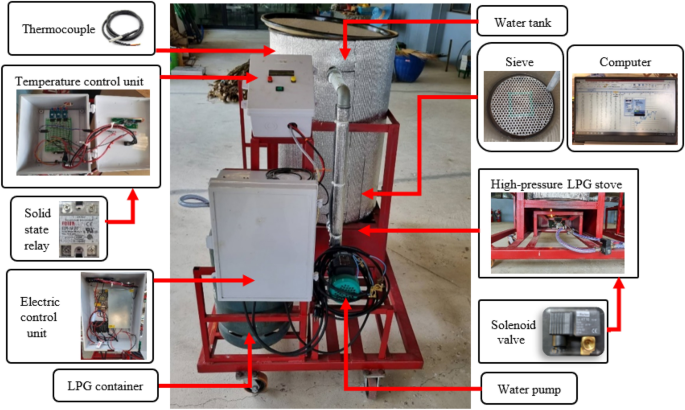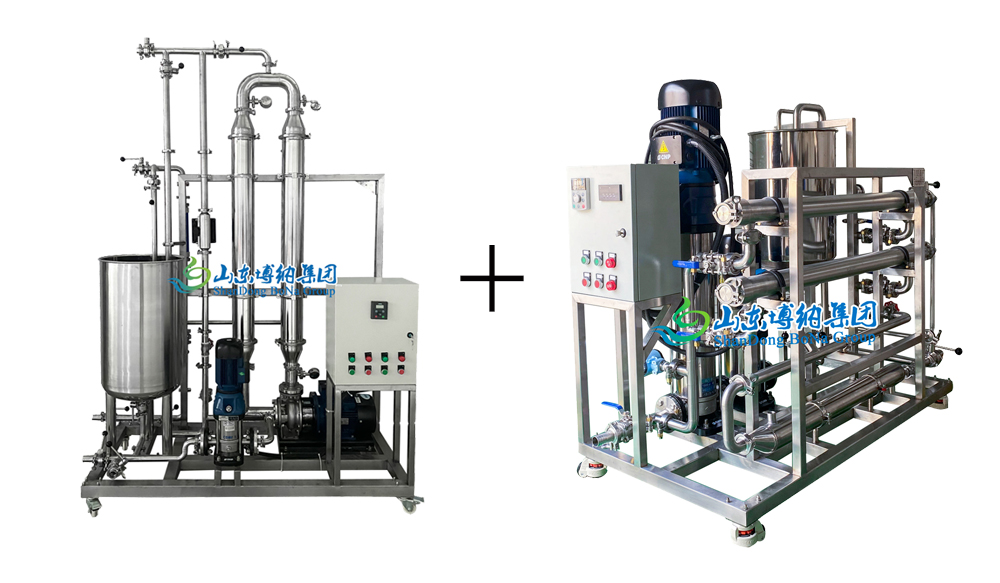Are Products From Sugarcane Truly Biodegradable?
Are Products From Sugarcane Truly Biodegradable?
Blog Article
Unlocking the Prospective of Products From Sugarcane: a Comprehensive Guide
The possibility of sugarcane extends far past its conventional use for sugar manufacturing. This guide checks out the multifaceted applications of sugarcane, from power and eco-friendly products to health products. By analyzing its journey from field to manufacturing facility, it discloses just how lasting practices can transform waste into important resources. As industries seek environment-friendly remedies, the inquiry remains: how can these advancements improve our strategy to farming and production?

The Trip of Sugarcane: From Area to Manufacturing facility
Sugarcane undertakes an interesting change as it travels from lush areas to busy factories. In the areas, the high, eco-friendly stalks are harvested, typically by mechanical methods or manual work. Once cut, the sugarcane is quickly transported to processing facilities to assure maximum quality. At the factory, the initial step entails crushing the walking cane to draw out the sweet juice, which consists of sucrose. Products From Sugarcane. This juice is then filtered and made clear, eliminating impurities. Following this, it goes through evaporation to concentrate the sugar material, bring about condensation. The resulting sugar crystals are divided from the staying molasses via centrifugation. The sugar is dried out and packaged for distribution. Throughout this trip, preserving top quality and efficiency is crucial, as the approaches utilized straight impact the product's final top quality. This change not only highlights the agricultural relevance of sugarcane however additionally its considerable function in the international economy
Sugar and Its Derivatives: Greater Than Just Sweetness
The transformation of sugarcane into refined sugar opens up the door to a vast array of items and applications that expand past simple sweetness. Sugar and its by-products, such as molasses, brownish sugar, and sugar, play important duties in numerous industries, including food, pharmaceuticals, and cosmetics. In the food field, these ingredients improve tastes, enhance appearance, and work as preservatives.Molasses, a byproduct of sugar manufacturing, is abundant in minerals and vitamins, making it an important component in wellness foods and pet feed. Sugar, a straightforward sugar originated from sugarcane, acts as a substantial power source in sporting activities nourishment and is essential in the production of confectionery. Additionally, sugar derivatives are made use of in fermentation processes, contributing to the manufacture of liquors and various other microbial products. On the whole, the convenience of sugar and its derivatives highlights their relevance beyond simple sweet taste in daily life.
Biofuels: Harnessing Energy From Sugarcane

A considerable section of global biofuel production now relies on sugarcane, acknowledged for its high power yield and performance in converting sunshine right into biomass. This exotic plant functions as a primary resource for ethanol, a renewable gas that can change gas in cars. Sugarcane's ability to generate more ethanol per hectare than other feedstocks, such as corn, adds to its enhancing appeal among biofuel producers.The fermentation process of sugarcane juice or molasses creates ethanol, which can be blended with nonrenewable fuel sources to minimize greenhouse gas emissions. In addition, by using the recurring bagasse from sugarcane processing, power can be generated with combustion, more enhancing the sustainability of biofuel manufacturing. As countries look for to reduce environment modification influences, sugarcane biofuels provide an appealing option, strengthening energy security and advertising farming sustainability while sustaining rural economies.
Eco-friendly Plastics: The Lasting Alternative
How can markets shift to even more sustainable practices when faced with growing plastic air pollution? One promising solution lies in eco-friendly plastics acquired from sugarcane. Unlike typical petroleum-based plastics, these bioplastics provide an environmentally friendly choice that can considerably decrease environmental influence. Made from renewable resources, sugarcane-based plastics decompose much more quickly in numerous problems, minimizing garbage dump buildup and aquatic debris.The production of biodegradable plastics not just addresses waste monitoring challenges yet likewise lines up with the boosting consumer demand for lasting products. Industries taking on these materials can enhance their brand name photo while contributing to a circular economic climate. Furthermore, the change to naturally degradable choices motivates advancement and financial investment in brand-new modern technologies, cultivating a greener sector landscape.As extra companies acknowledge the advantages of sugarcane-derived plastics, the capacity for extensive adoption boosts, leading the way basics for a much more sustainable future in packaging and product design.
Animal Feed and Fertilizers: Using Results
The results of sugarcane handling hold substantial possibility for both pet nourishment and organic fertilizers. These results can be incorporated right into pet feed, providing essential nutrients while minimizing waste. Additionally, they can act as reliable natural fertilizer options, improving soil health and advertising sustainable farming methods.
Byproducts in Pet Nutrition
While sugarcane is primarily valued for its sucrose web content, its results play an essential role in pet nutrition, specifically in the type of pet feed and fertilizers. The fibrous residue understood as bagasse, created throughout the extraction of juice, offers as a useful source of roughage for livestock. This high-fiber product boosts digestion and advertises overall health in ruminants. Furthermore, molasses, a byproduct of sugar refining, is abundant in energy and can be utilized to supplement pet diet regimens, enhancing palatability and nutritional worth. Moreover, vinasse, a fluid byproduct from ethanol production, includes essential nutrients and can be made use of as a feed additive. Overall, sugarcane byproducts contribute significantly to lasting pet nourishment techniques.
Organic Plant Food Options
Making use of sugarcane byproducts expands past pet nutrition to include organic fertilizer alternatives that profit agricultural practices. The coarse residues, such as bagasse and filter cake, offer as reliable organic fertilizers, improving soil health and wellness and improving crop returns. These materials are abundant in nutrients, consisting of potassium, phosphorus, and nitrogen, vital for plant development. When decayed, they boost soil framework, water retention, and microbial task, fostering a lasting farming community. In addition, utilizing sugarcane byproducts for fertilization lowers reliance on artificial fertilizers, promoting ecologically pleasant farming approaches. By reusing these byproducts, farmers can add to a round economy while optimizing their efficiency and lowering waste. This technique exemplifies cutting-edge methods in sustainable farming, leveraging sugarcane's complete potential.
Health and Wellness: Nutritional Perks of Sugarcane
Countless researches highlight the nutritional advantages of sugarcane, making it a useful enhancement to a balanced diet regimen. Rich in essential nutrients, sugarcane has considerable amounts of carbohydrates, vitamins, and minerals, specifically vitamin C, calcium, and potassium. These parts add to general wellness, supporting immune function and bone strength.Moreover, sugarcane is an all-natural source of antioxidants, which assist battle oxidative tension and inflammation in the body. Its high fiber content help in digestion, advertising intestine health and preventing bowel irregularity. In addition, sugarcane juice has been connected to hydration and energy replenishment, making it an excellent selection for athletes or those taking part in arduous activities.Furthermore, the glycemic index of sugarcane is fairly reduced, permitting an extra gradual launch of energy, which might be advantageous for people managing blood sugar level levels. Generally, incorporating sugarcane right into one's diet regimen can provide a renewing and nourishing option for health-conscious people.
Advancements in Sugarcane Products: Future Trends and Opportunities
What innovations lie ahead for sugarcane items as markets look for to enhance sustainability and consumer appeal? The future of sugarcane products is poised for considerable improvements, driven by the demand for eco-friendly alternatives. Developments in bio-based packaging, originated from sugarcane, are getting traction, using a lasting alternative to typical plastics. Furthermore, the expedition of sugarcane's bioactive substances is most likely to cause brand-new wellness supplements and useful foods, profiting from its all-natural benefits.Research right into fermentation processes may produce unique biofuels, even more expanding sugarcane's energy. The growth of genetically modified sugarcane ranges promises boosted returns and resistance to bugs, thus supporting lasting farming methods. As consumers come to be a lot more ecologically mindful, the integration of openness in sourcing and production techniques will likewise play an important duty fit the future of sugarcane products. Inevitably, these technologies might redefine sugarcane's placement in worldwide markets.
Frequently Asked Inquiries
What Are the Environmental Effects of Sugarcane Farming?
The ecological effects of sugarcane farming consist of deforestation, loss of biodiversity, dirt deterioration, and water pollution - Products From Sugarcane. Additionally, too much pesticide and plant food usage can hurt ecosystems, while monoculture techniques may result in minimized strength against climate modification

Exactly How Is Sugarcane Processed Into Different Products?
Sugarcane processing entails harvesting, crushing, and drawing out juice, which is after that made clear and focused. The resulting syrup can be fermented for ethanol or taken shape try here for sugar, while fibers are made use of for bioenergy and various other items.

Are There Any Health Risks Connected With Sugarcane Consumption?
The question of wellness risks associated with sugarcane consumption highlights concerns such as extreme sugar intake, potential allergies, and stomach concerns. read more Small amounts is important to minimize these dangers while enjoying its dietary advantages.
What Are the Economic Perks of Sugarcane Cultivation?
The financial benefits of sugarcane farming include task production, boosted agricultural efficiency, and payments to regional economies. In addition, it supports renewable resource manufacturing and supplies various by-products that can boost success within diverse markets.
How Does Sugarcane Contrast to Other Renewable Resources?
Sugarcane, as a renewable source, demonstrates higher performance in biomass manufacturing compared to lots of alternatives. Its convenience permits numerous by-products, adding significantly to lasting practices, financial growth, and decreasing dependence on fossil fuels. Glucose, a straightforward sugar derived from sugarcane, serves as a considerable energy source in sporting activities nutrition and is crucial in the production of confectionery. Sugarcane's capacity to produce more ethanol per hectare than various other feedstocks, such as corn, adds to its raising appeal amongst biofuel producers.The fermentation process of sugarcane juice or molasses produces ethanol, which can be combined with fossil fuels to lower greenhouse gas emissions. In addition, sugarcane juice has actually been linked to hydration and energy replenishment, making it a superb option for athletes or those engaging in exhausting activities.Furthermore, the glycemic index of sugarcane is reasonably reduced, allowing for a much more gradual release of power, which might be useful for people taking care of blood sugar degrees. In enhancement, the expedition of sugarcane's bioactive compounds is most likely to lead to new wellness supplements and useful foods, taking advantage of on its natural benefits.Research into fermentation processes might produce unique biofuels, additionally branching out sugarcane's utility. The question of health and wellness dangers associated with sugarcane consumption highlights concerns such as extreme sugar intake, prospective allergies, and intestinal issues.
Report this page